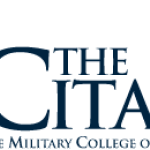- Settore: Education
- Number of terms: 941
- Number of blossaries: 0
- Company Profile:
A humorous, mocking imitation of a literary work, sometimes sarcastic, but often playful and even respectful in its playful imitation
Industry:Literature
The turning point of the action in the plot of a play or story. The climax represents the point of greatest tension in the work.
Industry:Literature
A struggle between opposing forces in a story or play, usually resolved by the end of the work. The conflict may occur within a character as well as between characters.
Industry:Literature
A comparison between essentially unlike things without an explicitly comparative word such as like or as. An example is "My love is a red, red rose." Compare Simile.
Industry:Literature
A form of language use in which writers and speakers convey something other than the literal meaning of their words. Examples include hyperbole or exaggeration, litotes or understatement, simile and metaphor, which employ comparison, and synecdoche and metonymy, in which a part of a thing stands for the whole.
Industry:Literature
The grammatical order of words in a sentence or line of verse or dialogue. The organization of words and phrases and clauses in sentences of prose, verse, and dialogue
Industry:Literature
A literary work that criticizes human misconduct and ridicules vices, stupidities, and follies.
Industry:Literature
The associations called up by a word that goes beyond its dictionary meaning. Poets, especially, tend to use words rich in connotation.
Industry:Literature
The dictionary meaning of a word. Writers typically play off a word's denotative meaning against its connotations, or suggested and implied associational implications.
Industry:Literature
